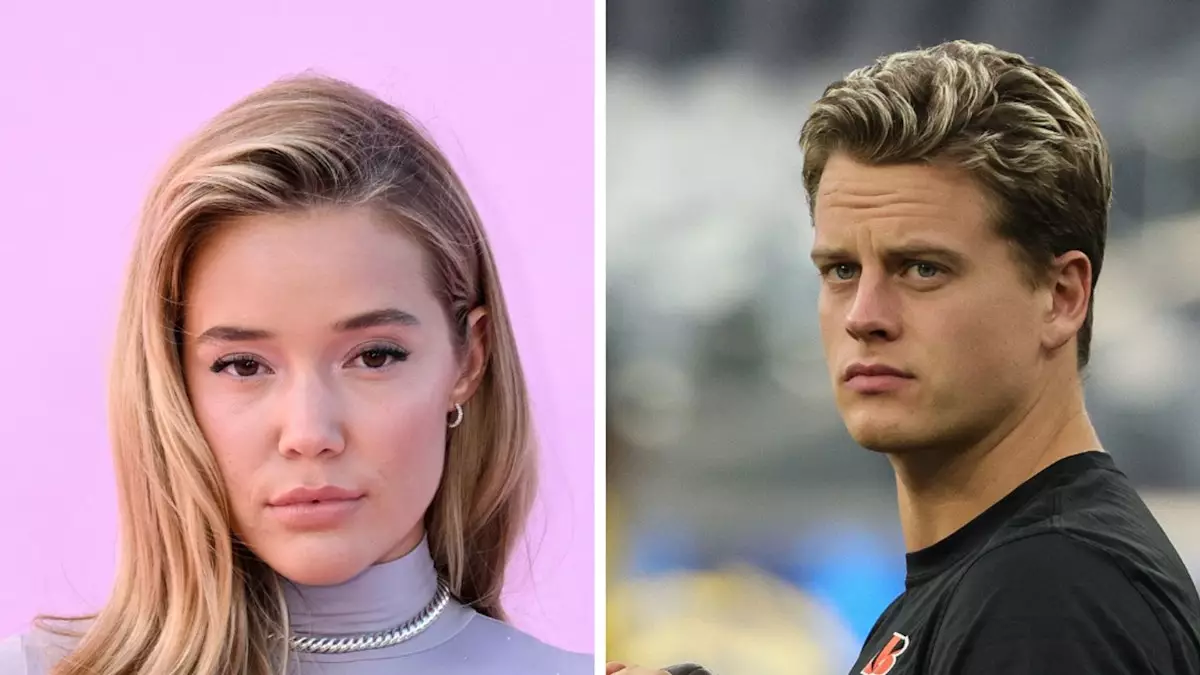The world of professional sports often presents a glamorous façade, but escalating incidents of crime targeting high-profile athletes unveil a more troubling reality. Recently, Cincinnati Bengals quarterback Joe Burrow became the latest victim of this alarming trend, as his home was burglarized during a Monday night football game. This incident not only raises questions about the safety of athletes but also about the underlying issues associated with fame and fortune.
On an otherwise typical game night, Burrow was engaged in a critical match against the Dallas Cowboys while his Ohio residence faced an unsettling disturbance. Reports indicate that influencer Olivia Ponton raised the alarm after encountering evidence of a break-in, highlighting the disturbance that unfolded as Burrow competed thousands of miles away. The burglary was brought to the attention of local authorities just after 8 PM, underscoring a disturbing new reality for NFL players— vulnerability even in their own homes.
Olivia’s swift reaction to contact her mother and subsequently the police is indicative of the initial shock experienced during such a violation of personal space. The police reports described how she discovered a shattered bedroom window and disarray within the home. The subsequent investigation revealed a reality that many athletes now seem to face: the intersection of fame and personal safety.
The burglary at Burrow’s residence is not an isolated incident within the NFL community. In fact, there has been an alarming spike in break-ins targeting professional athletes while they are away at games. High-profile players like Travis Kelce and Patrick Mahomes have also fallen victim to similar criminal activities. This trend reveals a concerning pattern as it is increasingly evident that burglars see athletes as particularly desirable targets, likely due to their wealth and public exposure.
The motivations behind such crimes can be complex, often rooted in a societal fascination with celebrity culture and the comparative wealth it represents. The reality is that as sport figures gain fame, they also inadvertently draw unwanted attention that can culminate in threatening situations. Additionally, it underscores the need for enhanced security measures around the homes of these athletes, particularly during game nights when they are likely to be absent.
In a twist of fate, Olivia Ponton—a successful social media influencer—became the bearer of unpleasant news for Burrow. With an impressive following on platforms like TikTok and Instagram, she has captured the public’s attention and garnered respect in her field. However, her unexpected involvement in this burglary case illustrates how intertwined the lives of sports icons and social media personalities can be.
Olivia’s rise to fame during the pandemic, where she embraced a lifestyle of creativity and self-exploration, ultimately led her into the orbit of high-profile athletes. As rumors swirl about her relationship with Burrow, it signifies a broader phenomenon where influencers and sports figures frequently overlap. This merging of worlds not only amplifies their public personas but can also complicate their private lives.
The ongoing trend of burglaries against NFL players highlights a pressing issue for the broader community. While athletes often have the means to invest in security measures, there’s a growing responsibility that extends beyond individual protections. Local law enforcement and neighborhoods must work collaboratively to enhance security protocols, not only for players but for the communities that house them.
As fans and community members, the onus falls on all of us to foster environments where these individuals feel secure. There is a shared responsibility to address the underlying social issues that lead to criminal behavior, as well as to protect those who entertain and inspire millions on and off the field.
Joe Burrow’s burglary incident serves as a stark reminder of the vulnerabilities associated with fame, particularly in the sport world. While the allure of the NFL continues to captivate audiences, it is crucial to recognize the hidden dangers that accompany such celebrity. By understanding these dynamics, we can begin to foster a safer environment for athletes and, by extension, their communities. Ultimately, we must shift from passive spectators of sports culture to active participants in ensuring the safety and dignity of those who bring us joy through their performances.

